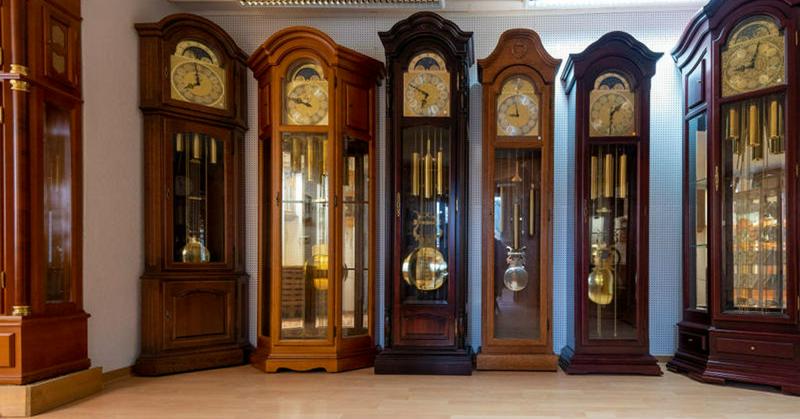The History Of Grandfather Clocks
By | January 2, 2022

The grandfather clock is a timepiece that goes overboard in the stately elegance department. An unnecessarily large and dominant style of clock, the grandfather clock has less to do with your gramps, however, and more to do with the science of the pendulum and a good old-fashioned ghost story.
The Chris And The Pendulum
Grandfather clocks, which were originally called long case clocks, were invented by a Dutchman named Christiaan Huygens in 1656. Huygens was quite a Renaissance man: He was a physicist, mathematician, astronomer, inventor, and scientist. In fact, he was considered one of the greatest scientific minds of his day. He identified Saturn's moon, Titan; developed a wave theory of light; and founded the field of study known as mathematical physics.
He also dabbled in horology, the study of the measurement of time, which led him to an extensive study of pendulum motion. Use of a pendulum, Huygens discovered, greatly improved the accuracy of timekeeping. His pendulum clock marked the biggest breakthrough in clock making in three centuries, but it required a sizable pendulum housed in a long case, hence the name "long case clock."

Grandfathered In
The celebrated Dutchman's clocks soon became a symbol of Great Britain after London clock maker Anasuerus Fromenteel sent his son to Holland to learn how to make them. For the next several decades, British long case clocks were the pinnacle of timekeeping, but the ornate clocks were also quite expensive. Identifying an opportunity, American manufacturers flooded the market with clocks made with less costly materials, and by the end of the 1870s, British long case clock production ground to a virtual halt.
That was also around the time they got a new name. In 1875, American songwriter Henry Clay Work visited a North Yorkshire inn, where he noticed a tall, beautiful clock that sadly wasn't working. The innkeeper explained that the clock stopped working after the inn's previous owners, a pair of brothers, passed away, and no repairman had managed to fix it. Work used the story as the basis of his famous song, "My Grandfather's Clock," about a long case clock purchased the day the narrator's grandfather was born that could sense the happiest and most tragic moments of the man's life and stopped working after he died. The song was an instant hit, and people began referring to long case clocks as "grandfather clocks."

